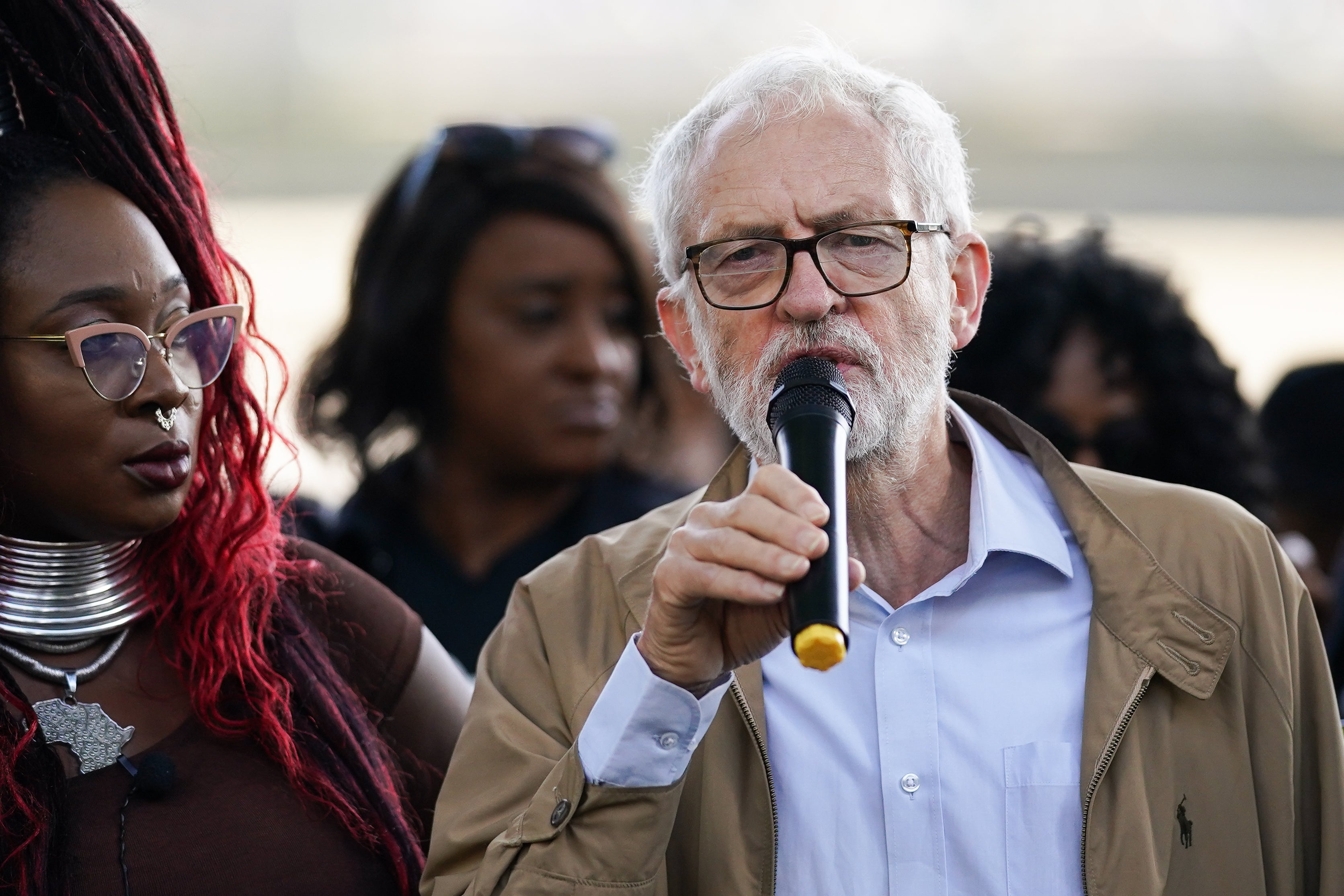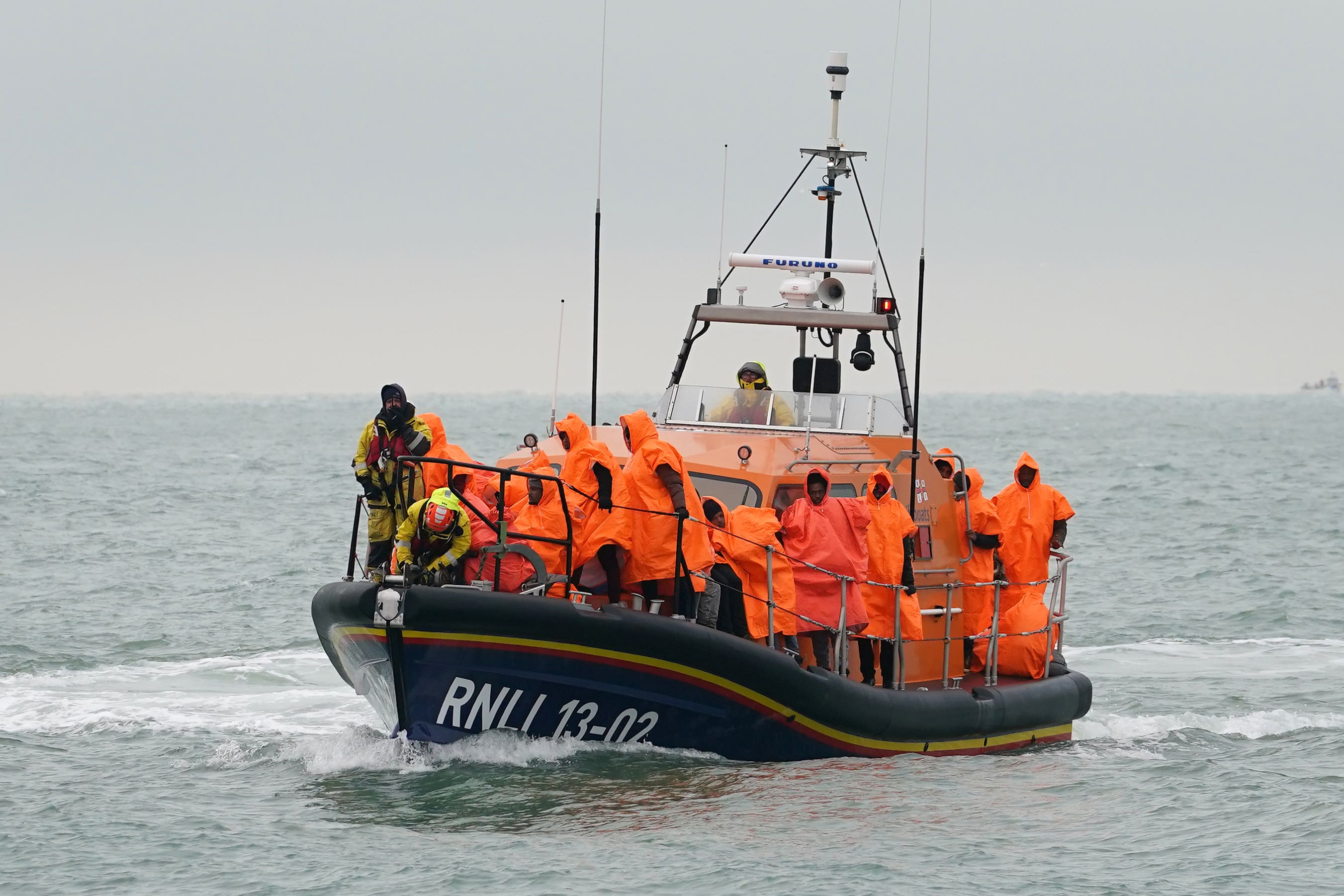Rishi Sunak and the Tories have a political mountain to climb – and the path is perilous
Conservative strategists believe Labour’s poll lead is soft, writes Andrew Grice, but Keir Starmer is proving hard to demonise, and that leaves a tough road ahead as the country moves towards a 2024 general election


In 2019, the Conservatives had three assets in what some called the “BBC election”: Boris, Brexit and Corbyn. But when the party seeks an unprecedented fifth term next year, none of these factors are likely to be in play.
Although Boris Johnson does not stop his fan club talking up a spectacular return, it is highly unlikely to actually come to pass. While the Tories will try to make Brexit an issue, Keir Starmer has an insurance policy; the exiled Jeremy Corbyn won’t even be a Labour candidate, let alone the party’s leader.
How can the Tories compensate for the loss of their three 2019 aces? Elections usually boil down to “time for change” versus “let us finish the job; don’t let the other lot ruin it”. As long ago as 1959, the Tories won re-election with the slogan: “Life’s better with the Conservatives. Don’t let Labour ruin it.” In 1987, Margaret Thatcher won a third term with: “Britain is great again. Don’t let Labour wreck it.” In 1997, John Major failed with: “Britain is booming. Don’t let Labour blow it.” But slogans can’t defy political gravity.
After 14 years of Tory rule, the 2024 contest is bound to have a similar feel. What could the Tories say in the now compulsory three-word slogan? Perhaps “Britain’s getting better” or “Britain’s on track”. But Rishi Sunak couldn’t claim that now.
Although Labour strategists worry that a “Britain is broken” campaign might undermine Keir Starmer’s patriotic pitch, public services are creaking after years of austerity and the pandemic. “Britain isn’t working,” would be a credible attack line for Labour, turning the tables on the Tories for their 1978 jobless queue poster under Thatcher.
Both main party leaders have a three-stage strategy. For Sunak: stabilise the financial markets; set out limited pledges on “the people’s priorities” (copyright Tony Blair), and then take the fight to Labour with a forward-looking vision. He hopes to win some credit if he makes progress towards his goals to halve inflation, grow the economy, reduce debt and NHS waiting lists and stop migrants crossing the Channel in small boats.
With Labour blaming the problems the PM is trying to solve on the Tories, a key test will be whether Sunak can cut Labour’s 20-point lead in the opinion polls. If they don’t move, it will suggest the brand damage to the Tories last year may be irreparable before the election.
Plenty of Tory MPs are privately resigned to defeat, and with good reason. When the Policy Exchange think tank asked people what the Tories had got right since coming to power, the most common answer was “nothing.” Matthew Goodwin, professor of politics at the University of Kent, said this reflects “the disillusionment with the party” and “the despair with the state of the country,” adding: “Nor is the government getting any credit for things it has got right, such as the Covid-19 vaccines, the furlough scheme, and Britain’s swift and decisive response to the war in Ukraine.”
It’s not easy for Sunak to either defend or criticise the Tories’ record since 2010. The latter would risk civil war; allies of Johnson and Liz Truss are already making trouble for him. He would love voters to forget Truss’ failed experiment, but about four million people will see their mortgage payments rise this year. Even with inflation and wholesale gas prices falling, energy bills will rise, and the living standards crisis is far from over.
Sunak advisers, who point to Sunak and Starmer being level on “best PM” and economic competence, insist there is a “steep but narrow path” to a Tory victory. But Sunak first must clear his five relatively low hurdles.

He is on the right agenda. When Policy Exchange asked people to name what the government should prioritise this year, inflation, the NHS and more self-sufficient energy infrastructure were the top three issues. But among 2019 Tory voters, “stopping the small boats” came top. Sunak must target them, since about six in 10 have deserted his party. Crucially, only between 10 and 13 per cent of this group have switched to Labour, and about one in three “don’t know” how they will vote. If Sunak can win round the “shy Tories,” his party would be back in the game.
The five goals bear the hallmark of Isaac Levido, a protege of Lynton Crosby, the hard-nosed Australian strategist who previously advised Johnson. Levido is secretly feared by Labour. “A very serious, clever operator,” one Labour source told me. Levido will ensure the Tories repeat Sunak’s five pledges ad nauseam. He has adopted Crosby’s mantra to “get the barnacles off the boat”, i.e. remove distractions to help place focus on the bread-and-butter issues voters care about. This means avoiding legislation that might provoke rebellions by mutinous Tory backbenchers. Sunak must perform a constant balancing act to appease rival Tory factions, and so the first King’s Speech of Charles III’s reign, expected in the autumn, is being filleted.
Sunak told his cabinet last week that his five priorities are “not the limits of the government’s ambition, but the foundations on which we can help build a better future for our children and grandchildren.” Yet he has not yet turned such rhetoric into an offer for 20- to 40-year-olds by tackling issues such as housebuilding, childcare and generation rent.
Impatient Tory MPs argue Sunak cannot delay outlining his vision for the country. His first party political broadcast last week was seen as wooden. “He speaks from the head rather than the heart,” said one former minister. There is a growing clamour for tax cuts and pro-growth measures from Tory MPs; to get them off his back, Sunak will probably deliver some tax cuts before the election, and promise more in the Tory manifesto.
Immigration could be a strong issue for the Tories – and a possible weak point for Labour – but first, the government will need to show progress on the Channel crossings. Some Tories want an election pledge to withdraw from the European Convention on Human Rights, so the party can “play the Europe card” against Labour – even though it is not an EU institution. The move would be at odds with Sunak’s attempts to rebuild the UK’s image on the world stage, but he might be tempted if the European Court of Human Rights blocks the removal of asylum seekers to Rwanda.
The Tories hope “Europe” will be Starmer’s Achilles heel, given his support for Remain in 2016 and call for a second referendum. They will probably accuse him of planning to take the UK back into the EU, even though he would not. He may remain an elusive target on Brexit.

“Johnson or Corbyn” was a stark choice for voters in 2019. In contrast, the next election will be a choice between two managers who both place competence and pragmatism above ideology or radical policies, and have dragged their respective parties to the centre ground. Starmer has taken Labour a long way in almost three years as leader, particularly on economic competence. His three-stage plan was to show voters his party had changed since the Corbyn era; undermine the Tory record and then win positive support for Labour’s alternative. Phases one and two have been accomplished, but part three is only just beginning.
Tory strategists believe Labour’s poll lead is soft and there is little enthusiasm for Starmer in the north and Midlands red wall which gave Johnson his thumping majority of 80. They sense a chink in Starmer’s armour over his alleged inconsistency. He has ditched several pledges on which he ran for the Labour leadership in 2020, including tax rises for the top five per cent of earners; free movement with the EU; common ownership of rail, mail, energy and water and scrapping universal credit, outsourcing in the NHS and university tuition fees. While this highlights a ruthless “whatever it takes” streak, Tories will likely claim it shows Starmer might say one thing before the election and do another if he won power.
But he is proving hard to demonise, and his policy shifts show he is addressing Labour’s weaknesses. Some Tories see mileage in “culture war” issues such as trans rights even though polling suggests these motivate a relatively small number of voters. An anti-woke campaign will form part of the Tory election effort as the party and its newspaper cheerleaders throw the kitchen sink at Labour and its leader.
Labour is more united than the Tories, and confident it is on the brink of power after four successive defeats. Starmer’s left-wing critics are furious he has ditched his “Corbynism without Corbyn” pitch and alarmed at the influence of his Blairite advisers. “He has been on a sharp learning curve,” one ally said.
Starmer rightly stamps on any hint of complacency. “We haven’t sealed the deal. It doesn’t feel like 1995 to 1997,” one frontbencher admitted, without adding what many Labour figures think in private: that Starmer does not have the popular appeal Blair enjoyed before his landslide. Starmer will enjoy one thing that helped Blair – an unofficial pact with the rejuvenated Liberal Democrats to target each party’s resources on seats where they are best placed to beat the Tories. A strong Lib Dem performance in the blue wall would aid a Labour victory.
The convergence of the two main parties was symbolised when Sunak and Starmer made new year speeches within a day and 100 yards of each other in Stratford, East London. Like Sunak, the Labour leader is under internal pressure to map out his “vision” for the country. Starmer will unveil several “missions” – the building blocks of the Labour manifesto. “We are not going to put everything in the shop window until much nearer the election,” said one insider. “What we need now is a strong outline of an attractive, credible and doable programme the public will want to embrace. The policies will flow over time.”
When he became Labour leader after the party’s worst defeat since 1935, it was Starmer who had an electoral mountain to climb. Now Sunak does; he, rather than Starmer, needs to change the political weather. The “long campaign” for the election has begun. We might have to wait another 18 months for the short, four-week one. Sunak’s path, as well as being very steep and narrow, will be very long.
Subscribe to Independent Premium to bookmark this article
Want to bookmark your favourite articles and stories to read or reference later? Start your Independent Premium subscription today.






Join our commenting forum
Join thought-provoking conversations, follow other Independent readers and see their replies
Comments